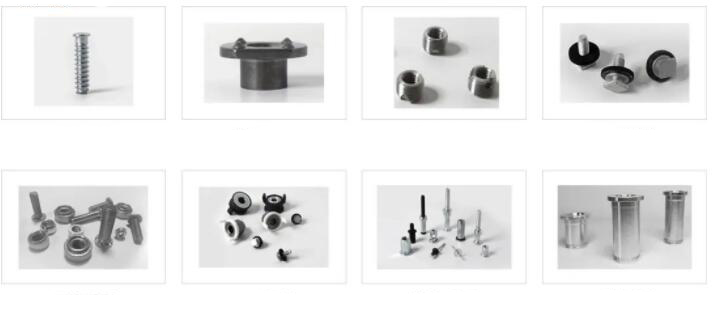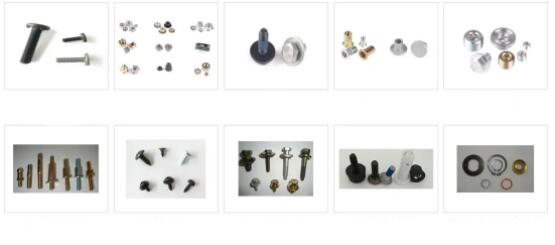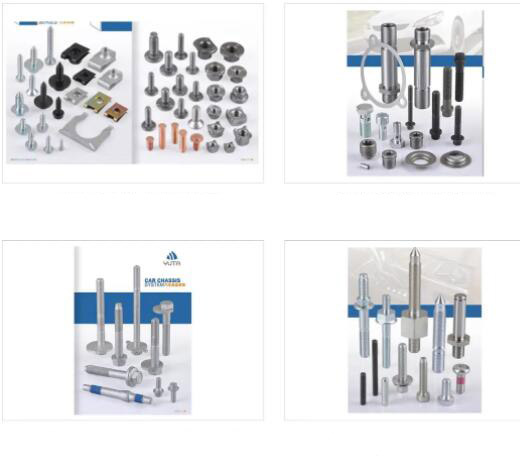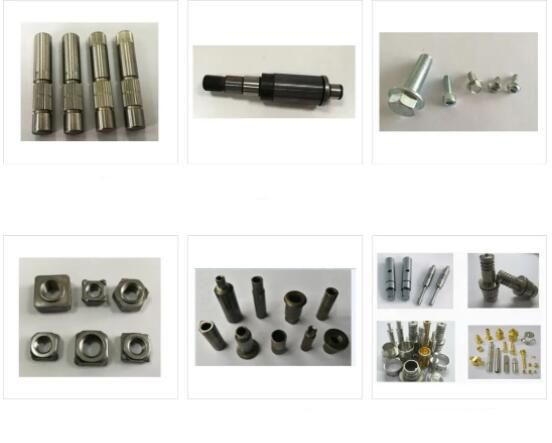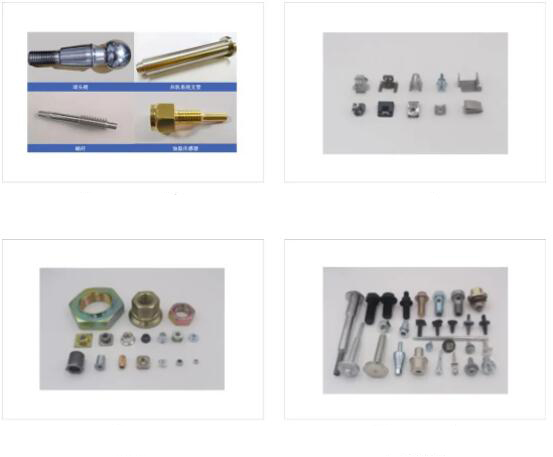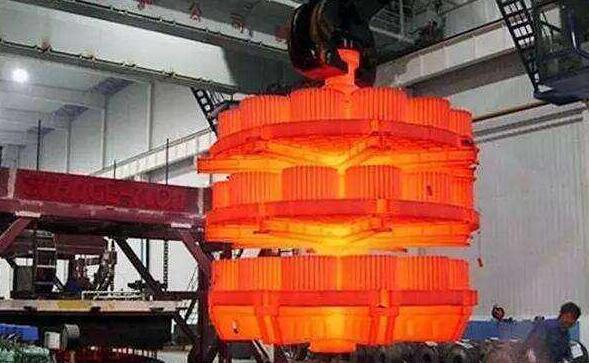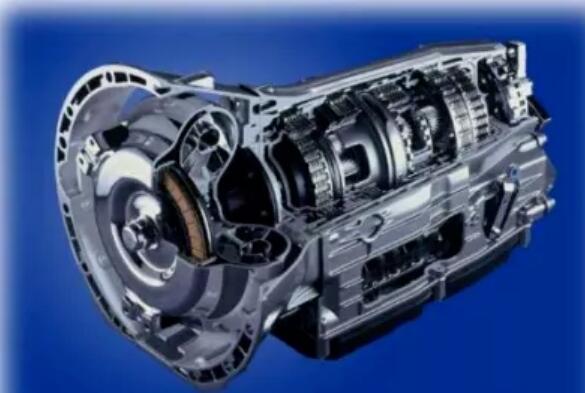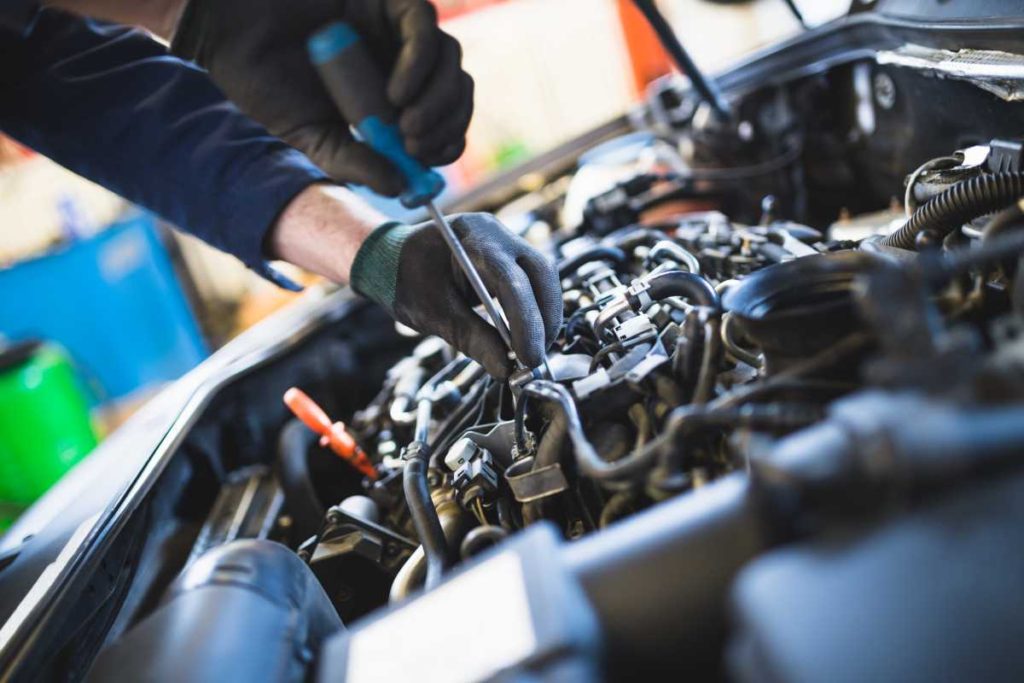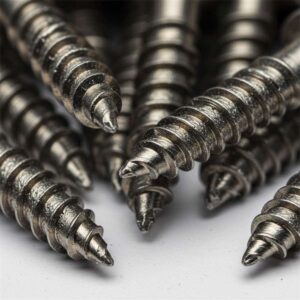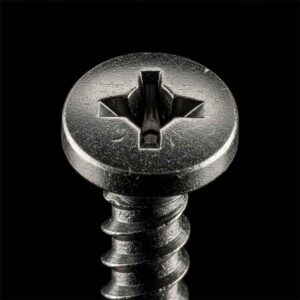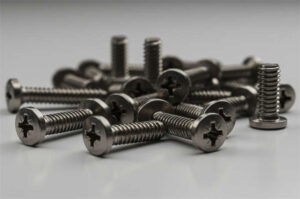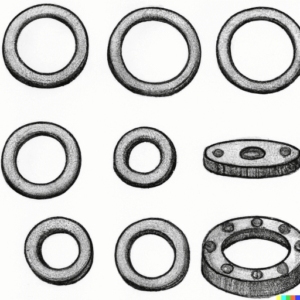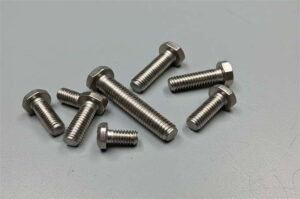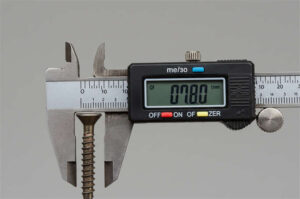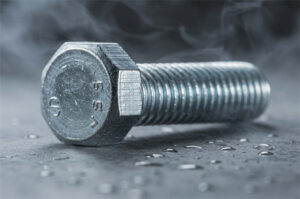Prince Fastener:5 fastener suppliers for Auto 2022
Fasteners are an extensive range of general-purpose essential parts. Fasteners can be steel, non-ferrous metals, stainless steel, titanium alloys, or other engineering materials. The main application markets are automotive, electronic, mechanical, construction, and maintenance.
The fastener industry will closely integrate the upstream and downstream resources of the industry, fully grasp the changes in user needs and greatly enrich the industry application scenarios. Furthermore, through the continuous optimization and upgrading of product and service quality, the explosive growth of fastener industry applications is promoted.
Prince fastener will list 5 fastener suppliers for auto for your refereferences
Fastener supplier 1:
Hubei Boshilong Technology Co., Ltd.
Founded in 1990 with a registered capital of more than 55 million yuan, Boshilong is a state-level high-tech enterprise dedicated to various medium and high-end riveting and fastening technologies and products, integrating production, operation, research, development, and service.
Boys have long been ingenious and dedicated to riveting technology for 30 years. However, it insists on targeting high-end products, high-end markets, high-end customers, and customized development. With the idea of ”small rivets in a big world, stick to the main business and seek development,” it closely focuses on the riveting parts industry to be the only one, To be a unique development goal, and strive to become a unicorn enterprise in the same industry in the world!
Main products:
Cooperative customers:
SAIC Volkswagen, SAIC Motor, FAW-Volkswagen, Changan Ford, FAW Car, DPCA, Changan Mazda, SAIC-GM-Wuling, Changan Citroen, Jiangling Motors, Great Wall Motor, Chery, Yutong, Magna, Lingyun, Month, etc.
Fastener supplier 2:
Wenzhou Changjiang Standard Parts Co., Ltd.
Wenzhou Changjiang Standard Parts Co., Ltd. is located at No. 328, 24th Road, Jinhai Park, Wenzhou Economic and Technological Development Zone. The company is a private enterprise with a registered capital of 60 million yuan and a total investment of 180 million yuan. With a total construction area of 32,000 square meters, it is a comprehensive enterprise specializing in automotive fasteners integrating R&D, manufacturing, marketing, and service. The main products are a complete set of standard parts for automobiles, various non-standard fasteners for cars, positioning pins, plastic-coated bolts, nuts, etc., in automobile engines. The company has 120 employees.
Since its establishment in 1995, the company has positioned its products at a high-quality level. It has invested a lot of human and financial resources in material selection, technology research, development, process control, inspection, and assurance. In 2004, the high-strength automotive engine bolts developed by our company were listed as provincial-level scientific and technological projects by Zhejiang Science and Technology Department; in 2005, they were listed as municipal-level scientific and technological projects by Longwan District, Wenzhou City. In 2007, when the technical data provided by the main engine factory could not meet the production needs, our company independently developed a series of positioning pins used in the engine. In 2013, the company was rated as a science and technology (innovation) enterprise in Wenzhou and a technology-based small and medium-sized enterprise in Zhejiang Province; in 2015, it was rated as a high-tech enterprise. In 2018, the laboratory was awarded the provincial research and development center. In addition, the company has several invention and utility model patents.
Main products:
Cooperative customers:
Volkswagen, Ford, Changan, BAIC, Shaanxi Automobile, etc.
Fastener supplier 3:
Zhejiang Yutai Auto Parts Co., Ltd.
Zhejiang Yutai Auto Parts Co., Ltd. was established in 1998. It is located in No. 439, Jinhai 2nd Road, Wenzhou Economic and Technological Development Zone, a national economic and technological development zone. It covers an area of 50.5 mu and has a registered capital of 75.8 million yuan. , Fastener research and development, production, and sales of private limited liability companies.
The company has passed IATF 16949:2016 quality management system certification, ISO 14001:2015 environmental system certification, OHSAS18001:2007 occupational health certification system, ISO/IEC 17025:2005 CNAS laboratory accreditation, and GB/T29490-2013 intellectual property management system certification; after several years of hard work, it has developed into a national high-tech enterprise integrating product research and development, design, production and sales, a high-tech enterprise in the production and research field of automotive fasteners in China, and a well-known enterprise in the automotive fastener industry.
The company has long adhered to the business philosophy of “customer-centered, talent-based, excellence, and pursuit of excellence,” constantly improving various management systems and processes, and continuously improving technology, quality, delivery capabilities, and innovation capabilities; Japan, Taiwan, and other world-class production equipment and top testing equipment, independently control the entire process of fasteners from product development and design to production; has more than 30 patents for invention and utility model patents with independent intellectual property rights; adopts SAP, ERP enterprise resource management System, OA automation office system, MES production management system and PLM product life management system for information management.
The company aims to “become a world-class high-end fastener manufacturer,” takes environmental protection and energy conservation as the premise, and is committed to becoming the world’s leading supplier of overall fastener solutions, making the Yutai brand well-known around the world.
Main products:
Cooperative customers:
Geely, Great Wall, Lynk & Co, Volvo, FAW-Hongqi, BYD, Qoros, Dongfeng Nissan, Dongfeng Passenger Vehicle, Weilai New Energy and other major OEMs; and parts factories Cummins, Getrag, Minth Group, Knorr-Bremse Wait
Fastener supplier 4:
Suzhou Antuoli Precision Parts Co., Ltd.
Suzhou Antuoli Precision Components Co., Ltd. was established in January 2011 with a registered capital of 10 million yuan. The factory is located in Yangchenghu Town Industrial Zone, Xiangcheng District, Suzhou City, adjacent to Suzhou S9 Ring Expressway, convenient transportation. It is a professional metal cold pier and precision machining enterprise.
The Suzhou factory currently has more than 200 employees and has more than 100 imported and domestic equipment. The company has completed testing equipment, including projectors, secondary elements, hardness testers, salt spray testing machines, tertiary elements, roughness meters, and concentricity meters. In addition, salt spray testing machine, automatic CCD sorting machine, and other testing equipment, the company has passed ISO/TS16949:2009 system standard certification and has a complete quality management system. Assist customers in providing R&D, proofing, and mass production services. At the same time, the company has accumulated some relevant experience in the design of materials, heat treatment, etc., in the early stage of the project. The company aims to provide customers with one-stop comprehensive hardware parts supporting services.
Company vision:
- Take customers as the center.
- Make every product well.
- Create value for customers and achieve joint development with customers.
Main products:
● Sheet metal welding parts for automobiles (welding nuts, welding bolts, riveting fasteners);
● Pack assembly of non-standard long screws and various auto-standard fasteners for new energy vehicles;
● Multiple types of non-standard cold pier screws, rivets, nuts, and bushings for automobiles;
● All kinds of precision parts processed by precision CNC and machining center for assembly;
● Hot-melt, pre-embedded, cold-pressed nuts, pipe fittings, non-standard rivets, shafts, valve cores, and other parts for plastic products;
● Various other supporting small stamping parts.
Cooperative customers:
BENTELER, Shanghai Siemens, Namar Automobile, Shanghai MAHLE, Webasto, China Auto Chengdu Parts Co., Ltd., Shanghai Meijia Automobile, WECHSLER, Qihoo Automobile, Jingjin Best Electric, Rochling Auto Parts, Anhui Hengxin, Pohang Ostrom, Beilin Medical Equipment, etc.
Fastener supplier 5:
Yueqing Xutai Screw Factory
Yueqing Xutai Screw Factory was established in 1996 and is located in the Economic Development Zone of Yueqing City, Zhejiang Province. The company integrates R&D, production, and sales. It is a professional fastener manufacturing enterprise with advanced technology and rich experience. It’s subsidiary Guangzhou Jingle Auto Fastener Co., Ltd. is located in Guangzhou Huadu Automobile Industry Base, facing the automobile industry in South China. The company adheres to precision manufacturing, and continuous improvement gradually introduces international advanced production equipment and continuously improves the technological process. The company has excellent research and development level and stable production capacity. The company has successively passed ISO9001:2000 and ISO/TS 16949 quality system certification in 2007 and 2011. It has complete testing equipment and rigorous testing procedures, and its product quality is reliable. The company is dominated by automotive fasteners, specializing in producing high-strength and high-precision fasteners and components in various fields such as automobiles and motorcycles, electronics, and electrical appliances. The company can have standard parts that meet the national standard (GB), American standard (ANSI), German standard (DIN), Italian standard (UNI), Japanese standard (JIS), an international standard (ISO). It can also jointly develop various parts with customers—complex customized special-shaped parts. The company’s products are now widely used in the supply chain of multiple automakers, mainly including fuel systems, steering systems, interior and exterior trim components, and new energy components. The company has become a mutually trusted partner with more high-quality customers with highly automated production, a strict system, and a modern management model. As a result, its sales performance has increased year by year. The completion of the new factory with more than 60 million investment has enabled Xu Tai to have more advanced production and control capabilities, showing a good development trend.
Main products:
Cooperative customers:
Magna, Edscha, SMR, Stanadyne, GAC Group, Hang Lung
Platform selection principle of metal fasteners for auto
To reduce the production and management costs of metal fasteners for automobiles, minimize the variety of metal fasteners, and achieve generalization and serialization, from the structural elements of fasteners (wrench form, end form, nominal length, thread), material The platformization of bolts, studs, screws, nuts, and washers is discussed in terms of mechanical properties and surface treatment, providing a reference for the platformization of fasteners by various automobile manufacturers.
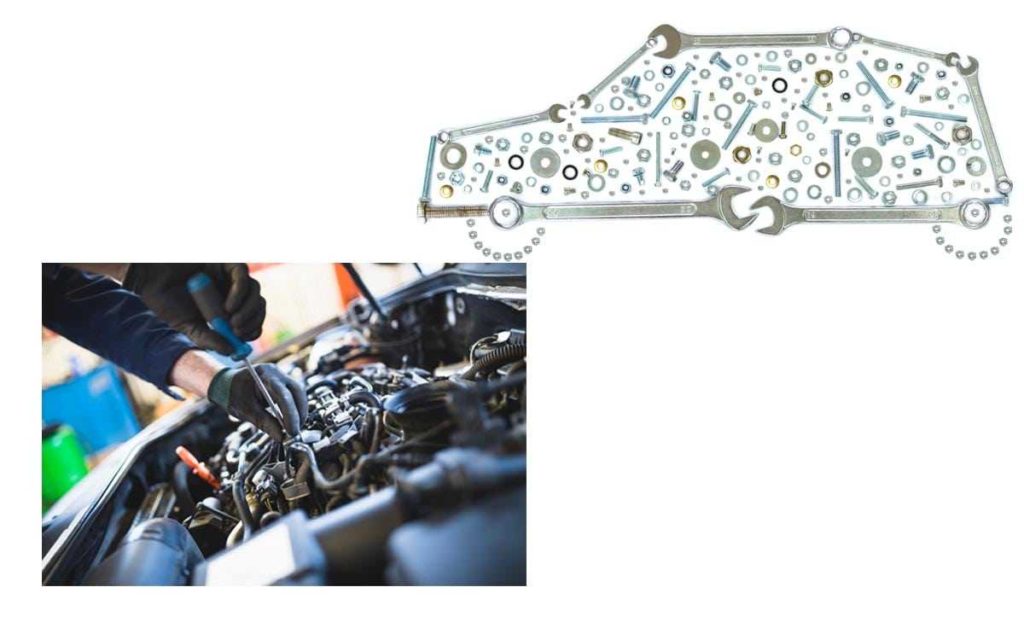
With the continuous development of the automobile industry, the platform work of fasteners is being used to curb the increase in production and management costs caused by the increasing number of metal fasteners (from now on referred to as fasteners) by more and more automobiles. Manufacturers pay attention.
The article discusses the platformization of fasteners from three aspects: structural elements, materials, mechanical properties, and surface treatment.
01
Platformization of Structural Elements
Structural elements mainly include wrench form, end form, nominal length, and 4 aspects.
1.1 Platformization in the form of wrenching
At present, the wrenching structures commonly used by automobile manufacturers include:
- Hexagonal flange surface structure.
- Hexagonal head structure.
- Outer hexagonal pattern structure.
- Cross groove structure.
- Inner hexagonal pattern structure.
1.1.1 Platformization in the form of bolt wrenching
The wrenching form of bolt products is mainly external wrenching structures, including hexagonal head, hexagonal flange surface, external hexagonal, etc. Hexagon head bolts are the primary type of bolt product, and most other bolt types are developed based on hexagon head bolts.
The support area of hexagonal flange bolts is more significant than that of ordinary hexagonal head bolts, which can disperse the pressure on the supporting surface and avoid the deformation of the connection with the connecting piece. Under the same friction factor requires a more enormous assembly torque than hexagon head bolts. The anti-loosening effect of the head flange is also significantly better than that of hexagon head bolts.
In automobile design, it is recommended to use hexagon flange bolts, but sometimes hexagon head bolts are also selected to improve production efficiency. For example, a particular station in the production workshop needs to install bolts of M8 and M102 specifications. Face bolts (Q184) require 2 types of installation tools.
If the M8 bolts use hexagon head bolts (Q150B) and the M10 bolts use hexagon flange face bolts (Q184), the production workshop only needs one 13 mm socket to complete the assembly of two types of bolts, saving the replacement of installation tools time.
The outer hexagonal pattern bolt requires a small assembly space, and the installation method of the hexagonal socket is not suitable. Consider using this type of bolt in an environment limited by space. Table 1 shows the selection priority of bolt-type fasteners.
1.1.2 Platformization in the form of screwing
The wrenching form of the screw is an inner wrench structure, mainly including cross groove, internal hexagon, inner six flowers, and so on. In addition, cross recessed screws are available in pan head, countersunk head, semi-countersunk head, and other types according to the shape of the head. They are selected according to the assembly space and shape factors and are generally used for body, electrical, interior, and exterior parts.
Hexagon socket head cap screws and socket head cap screws have different head shapes, including cylindrical head, low cylindrical head, pan head, countersunk head, and semi-countersunk head. They are generally used for casing parts such as engines and transmissions and in automobile molds. Also widely used. It is suitable for occasions where the wrench space is small, and an extensive support surface is preferred.
The two types of screws are recommended to use the hexagon socket wrench form, and in the same product or the same production line, it is not suitable to use these two types of wrenching documents simultaneously. Table 2 shows the priority of screw fastener selection.
1.1.3 Platforming in the form of nut wrenching
Nut products are generally used with bolts, studs, and screws to form a fastening system. Hexagon flange face nuts have the same effect as hex flange face bolts. If the structure allows, the hexagon flange face nut is preferred.
Cap nuts are used on occasions with appearance or protection requirements, such as back doors and luggage racks, which are often used.
Hex flange face locknuts include all metal locknuts and non-metal insert locknuts. The all-metal lock nut produces a locking effect by squeezing the thread to deform the line. The all-metal lock nut has good temperature resistance, but it is not suitable for frequently disassembled parts.
The non-metallic insert lock nut has good impact resistance, vibration resistance, and reusability but poor high-temperature resistance. Therefore, it is generally recommended that the temperature not exceed 100 °C.
Reed nuts are used for thin sheet metal and non-metallic plate parts and are widely used in car license plates, lamp brackets, body sheet metal parts, and other parts. Table 3 shows the selection priority of nut-type fasteners.
1.2 Platforming at the end
GB/T 2-2001 “Ends of External Threaded Parts of Fasteners” specifies 12 types of ends of fasteners. The primary function of the lots of fasteners is to facilitate fastener production, on-site assembly, and scraping. Table 4 shows the fastener end form selection priority.
1.3 Platformization of the nominal length
When selecting the length of bolts, studs, and screws, ensure that the end of the bolt or stud extends beyond the top surface of the nut by at least 2 thread pitches after matching with the nut. When screwing in blind holes, the length must not interfere with the blind spots.
When fasteners of the exact specification have the same nominal length, in principle, multiple thread lengths are not allowed. Table 5 shows the preferred sequence for nominal measurements.
1.4 Principle of thread platform
The common thread types commonly used by automobile manufacturers are common metric threads, including coarse thread and fine thread. Generally, the same thread pitch should be selected as far as possible for the duplicate nominal diameter threads in various series of vehicles developed by the same company to reduce the specifications.
Different thread precisions can be selected according to other surface treatments of fasteners. The recommended fit tolerance of the internal and external threads of the fastening system is 6H/6h. Table 7 shows the preferred sequence of thread precision.
Note: If the bolt or nut whose surface treatment is zinc-aluminum coating cannot pass through the end of the stop gauge smoothly, it is allowed to use the matching nut or bolt for testing, and it can be screwed in smoothly.
1.5 Platforming of gaskets
In principle, gaskets are not allowed to exist alone. However, if gaskets are required for the structure of parts, it is recommended that gaskets, bolts and nuts, and screws be used in combination to improve production efficiency.
Application scope of gasket products:
• need to cover larger holes in the parts being fastened;
• It is necessary to increase the structure of the contact surface and reduce the stress;
• Need to protect the surface of the parts being connected to prevent scratches;
• Helps prevent loosening;
• Improve fatigue performance of joints;
• Compensate for uneven mounting surfaces.
02
Platformization of Fastener Materials and Mechanical Properties
2.1 Platformization of materials and mechanical properties of bolts, studs, and screws
There are 10 performance classes specified in GB/T 3098.1—2010 Mechanical Properties of Fasteners, Bolts, Screws, and Studs. However, it is not recommended to use all these 10 performance classes of fasteners in an enterprise.
Products below grade 8.8 do not require heat treatment. Generally, different performance grades are directly achieved by using other materials. Therefore, according to the default performance grade requirements in the Auto Standard Parts Manual—2012 Edition, 4.8, 5.8, 8.8, 10.9, and 12.9 are recommended.
According to the requirements of materials and performance grades in the GB/T 3098.1-2010 standard, combined with actual production, the related materials for each performance grade are recommended, as shown in Table 8.
2.2 Platform of self-tapping screw materials and mechanical properties
Self-tapping screw products do not have specific markings to indicate performance levels. GB/T 3098.5-2000 “Self-tapping screws with mechanical properties of fasteners” has made requirements on the mechanical properties of self-tapping screws.
Self-tapping screw products are made of cold heading and carburized steel by surface carburizing heat-treatment process. The recommended materials are SWRCH18A and SWRCH22A.
2.3 Platform of Nut Materials and Mechanical Properties
There are many mechanical performance coefficients of nuts specified in GB/T 3098.2-2015 “Mechanical Performance Nuts for Fasteners,” and 8 and 10 are recommended.
The selection of the performance grade of the nut mainly depends on the performance grade of the bolts, studs, and screws with which it is matched. Generally, grade 8 nuts are used in conjunction with grade 8.8 bolts, and grade 10 nuts are used in conjunction with grade 10.9 bolts. Nuts with high-performance qualities can replace the performance. Use lower-grade nuts. The recommended nut performance classes are shown in Table 9.
2.4 Flat washer material and mechanical properties platform
Flat washers are generally used with bolts or screws, and two levels of hardness, 200HV and 300HV, are recommended. Different car manufacturers can formulate the outer diameter and thickness specifications of the company’s gaskets according to actual needs. Table 10 shows a recommended table of plain washer materials and mechanical properties.
Table 10 Flat Washer Material and Mechanical Properties Recommendations
03
Platformization of Fastener Surface Treatment
Common fastener surface treatments include oiling, phosphating, electro-galvanizing, zinc-nickel alloy, zinc-aluminum coating, oxidation, copper plating, and chrome plating. Each surface treatment is different in appearance, rust prevention, conductivity, etc. Therefore, surface treatment selection needs to be selected according to the actual working environment and installation requirements, as shown in Table 11.
3.1 Oiling
Oiling is to apply a layer of anti-rust oil on the surface of the fastener base. Oiled fasteners require that no rust will occur within half a year under normal storage conditions.
3.2 Phosphating
Phosphating is a fasteners’ chemical and electrochemical reaction with phosphoric acid or phosphate to form a water-insoluble phosphate chemical conversion film. Commonly used in automobiles are zinc-based phosphating and manganese-based phosphating.
Zinc-based phosphating hardness is low, and there is a phenomenon of powder falling, so it cannot be used in environments where cleanliness is required in the casing of engines, transmissions, etc. Therefore, manganese-based phosphating is generally used in interior cases such as engines and transmissions.
3.3 Electro-galvanizing
Electro galvanizing is depositing metallic zinc onto the surface of fasteners using an electrolytic process. To reduce the chemical activity of zinc and improve the anti-rust performance and appearance of fasteners, generally galvanized fasteners need to be passivated by chromate to form a chromate conversion film on the surface of fasteners. The process is called galvanizing passivation.
The composition of chromate solution is different, and fasteners of different colors can be obtained, such as black, white, blush, and military green. They are used in car cabs.
3.4 Zinc-nickel alloys
The zinc-nickel alloy surface treatment production process is similar to that of electro-galvanizing. A zinc-nickel alloy coating is formed on the surface of the fastener. The metal nickel content in the zinc-nickel alloy coating is 12%~15%, and its cost and corrosion resistance are higher than those of electro-galvanizing. Therefore, they are generally used in environments with high rust resistance and appearance requirements.
3.5 Zinc-aluminum coating
Zinc-aluminum coating is a thin film composed of overlapping multi-layer metal flakes and special inorganic adhesives formed by immersing the fasteners in zinc-aluminum coating solution after cleaning and shot blasting and then baking at high temperature.
The zinc-aluminum coating has good corrosion resistance and no risk of hydrogen embrittlement. It cannot be used in environments with electrical conductivity and cleanliness requirements. It is not recommended for fasteners with thread specifications smaller than M8. It is generally used in engine rooms, chassis, and other areas. The zinc-aluminum coating can be manufactured in various colors as required, and silver-gray zinc-aluminum coating and black zinc-aluminum coating are recommended.
3.6 Oxidation
Oxidation treatment is to immerse the fastener in a solid oxidant to form a thick oxide film on the surface of the fastener. It is often referred to as bluing or blackening; its corrosion resistance is lower than phosphating and electro galvanizing. As a result, it is less used in automobiles and is not recommended.
04
Summarize
The article introduces some experiences summed up in practical work and provides a reference for those engaged in this work.
The platformization of fasteners is a long-term and systematic process. It needs to be carried out as an essential task in the early stage of vehicle design, and the synchronous method of fasteners and other parts must be realized to avoid freezing due to other factors. Causes the problem of difficulty in the selection of fastener platforms.
Each car manufacturer can formulate the company’s platform-based selection principles for fasteners based on its actual situation, comprehensively considering all aspects of design, production, assembly, and after-sales.
